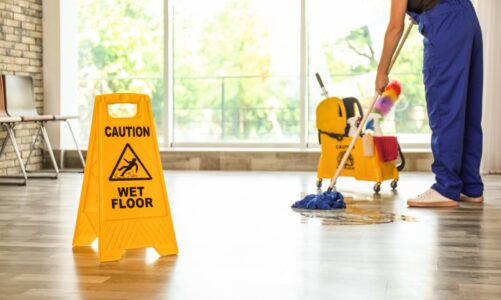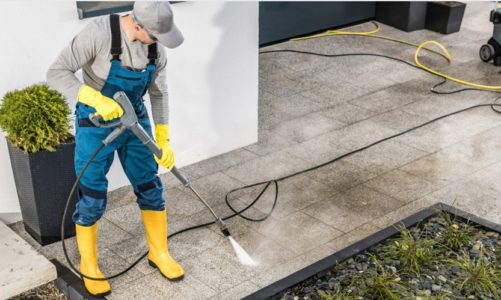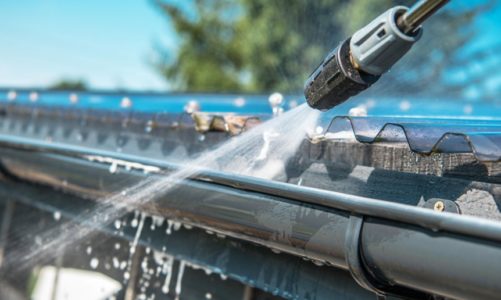It’s nice to think about the joy of your apartment upgrade when making the decision to toss an old refrigerator or stove or any appliance. However, the excitement fades quickly when you realize you cannot simply put that bulky appliance near the dumpster in your apartment complex. Due to the presence of refrigerants, oils and heavy metals, regulations govern the disposal of appliances such as refrigerators, freezers, and stoves. With a few mistakes it’s easy to find yourself facing penalties no tenant ever wants to find in their mailbox. Knowing the regulations now means you will not be scrambling for a solution when you are moving out.
This guide will help you understand the regulations/requirements and incentive programs you need to consider so your upgrade is safe legal and easy to manage.
Refrigerant regulations 101
When you unplug a refrigerator, freezer, air-conditioner, or dehumidifier, federal law kicks in. Section 608 of the Clean Air Act prohibits venting refrigerants—whether they are old CFCs, transitional HCFCs, or newer HFC blends—into the air. Only an EPA-certified technician (see here for additional info) can tap the sealed lines, use recovery equipment to remove the gas, and document what has happened. If you ever see a neighbor trying to cut refrigerant lines themselves, remind them that both of you could face penalties if building management reports unsafe practices.
Penalties reach $37,500 per violation, enough to pay a professional junk removal crew twice over. Many cities will not pick up an appliance unless you show the technician’s receipt, so file that paperwork just like a lease addendum.
Apartment dwellers should also check building rules: some complexes insist that your hauling crew use padded dollies to prevent floor damage, while others ask for proof of liability insurance—key when stairwell corners meet a 300-pound fridge.
Producer take-back programs
Manufacturers can help you retire an appliance as easily as they help you buy one. Twenty-plus states enforce “extended producer responsibility” laws that require brands to finance end-of-life collection and debris removal. Here’s how those programs usually work:
- Mail-back labels for compact units (think mini-fridges) let you drop the old machine at a parcel counter.
- Retail drop-offs allow you to return large appliances at the big-box store that sells you the new model.
- Doorstep exchange pairs the delivery of your shiny upgrade with same-day removal of the clunker you’re replacing.
Always ask whether the brand’s take-back van will handle stairs and tight hallways, because some contractors charge extra for multi-story buildings. Opting in keeps heavy lifting out of hallways and limits wear on elevators—one reason property managers love these hand-off services.
Rebate opportunities for replacements
Before we list the cash-back details, remember this: every rebate demands proof that the old appliance was recycled properly, and deadlines change frequently. Save your receipts from the hauling crew and take a quick photo of the model label before it disappears down the truck ramp.
- Utility “bounty” programs: Many power companies pay $30–$100 to collect a working fridge and scrap it responsibly.
- State or city energy offices: Seasonal rebates often stack on top of federal tax credits when you buy Energy Star models.
- Manufacturer promotions: Brands occasionally refund up to $200 during product-launch events if you trade in the old unit.
- Retailer haul-away discounts: Big stores slash delivery fees when you surrender the appliance they’re replacing.
- Low-income assistance funds: Select municipalities issue vouchers that offset the cost of efficient upgrades.
If you live in Idaho’s panhandle, Appliance Removal Coeur d’Alene can guide you through local rebate paperwork and supply the recycling proof you need. Doubling a rebate with free haul-away can shrink your out-of-pocket cost to almost nothing, so check the fine print before you pay.
“Can I leave it by the curb?”
In most places, the answer is no. Large appliances fall under “white-goods” ordinances that treat them differently from normal trash. Some cities allow curbside pickup only after you book an appointment, certify that refrigerant was removed, and pay a collection fee. Others ban curbside disposal altogether, directing residents to construction debris disposal sites instead. Even if curb service is allowed, you must tape the doors shut so kids can’t climb in while it waits for pickup—another rule that can trigger fines if ignored.
Ignoring these rules can bring fines or force your landlord to bill you for a private pick-up—never a good look when renewal season rolls around. Always read your waste-management website before nudging that oven toward the sidewalk.
Finding certified recyclers
Once you’ve got the legal hoops in place, the last step is to engage a team to comply with them. Start with the EPA’s Responsible Appliance Disposal (RAD) partners; then verify the local credentials. A licensed outfit will supply the paperwork to comply with the legal requirements and the individuals who may be responsible for rebates, and many will offer small-scale demolition when you are disposing of built-in cabinets or countertops at the same time. Ask if they use environmentally friendly break-down techniques that leave plastic, steel, and copper as separate materials for ultimate recoverability.
Reputable recyclers:
- Carry Section 608 certifications. Visit https://www.epa.gov/section608/section-608-technician-certification-requirements for additional details.
- Maintain liability insurance,
- Detail how they process scrap metal and hazardous oils, and
- Issue a final receipt in case your city audits building waste.
Choosing a vetted crew means no late-night phone calls from property management and no worries about where your appliance really ended up.
Conclusion
Recycling an apartment appliance is a great deal more than pushing a bin out to the curb. There are Federal refrigerant laws, state producer take-back laws, local white-goods ordinances, etc. If there are regulations to separate harmful gases and metals from landfills; it is worth complying with those regulations, engaging rebate programs, and hiring a certified professional junk removal team to upgrade your apartment without incurring fines—or your security deposit. Next time you are faced with recycling a heavy unit, you know the exact legal route from unplugged to pick up.



